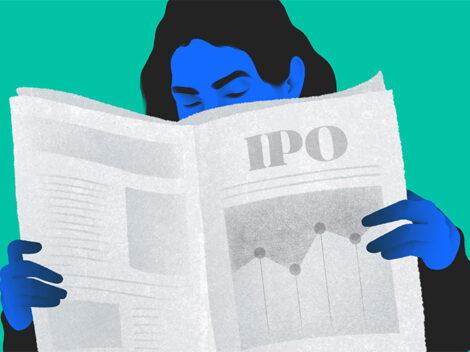Growth-stage investment firm, Lead Edge Capital (LEC) has raised $520 million for its fourth fund. This fund brings LEC’s total assets under management to more than $1.5 billion, according to the firm. This is the organization’s largest fund to date, with its first, second, and third funds closing $52 million, $140 million, and $290 million, respectively.
Follow Crunchbase News on Twitter
New York-based Lead Edge Capital was founded in 2009 by Mitchell Green, Wharton Business School grad and former investor at Bessemer Venture Partners. The firm has invested in companies ranging from cybersecurity company, Duo Security, to consumer-focused Spotify, and China’s e-commerce giant, Alibaba.
The firm invests in global companies, as exemplified by its previous investments, but it focuses primarily on software, consumer internet, and some consumer-facing product companies in the U.S. and Europe. Green told Crunchbase News that the vast majority of its investments are typically in companies with recurring revenue of $20 million or more and that it focuses on finding and funding a few high-growth companies.
“In core positions, we write $20 to $100 million checks to start. We run our fund with like 10 to 12 investments, so it’s concentrated,” Green told Crunchbase News. “We have three investment partners, [and] we do 1 to 3 deals a year over three to four years.”
Green explained that LEC splits its investment strategy and generally invests in companies in four different categories of risk. First are traditional growth stage deals, the riskiest, which account for about 50 percent of all of LEC deals and receive checks between $20 to $100 million. Targeted outcomes for these companies generally range from $400 million to $5 billion through acquisitions or mid-cap IPOs. LEC balances investment risk by investing in growth stage companies which fit at least five of eight criteria ranging from revenue and growth rate to customer concentration and capital efficiency.
LEC also invests in very large platform businesses like Alibaba, Uber, and Spotify, which receive investments of hundreds of millions, are (usually) profitable, and will very likely go public. Finally, the firm invests in public companies and, less often, very early stage companies which receive investments of $100,000 to $2 million, where the risk is much less pronounced.
“We were one of the first investors in [Bird]. I still can’t tell you at $2 billion if it’s going to be an amazing company,” Green expressed. “We basically do those to be in the position to write a really big check later on if the company gets to scale.”
Perhaps the most interesting part about LEC is not its investment focus, but rather its structural composition, which involves hands-on involvement from its LPs. Drawing on grassroots entrepreneurial culture, Green emphasized that Lead Edge Capital is funded by more than 250 LPs who are able and willing to not only provide mentorship based on their own experiences but also connect portfolio companies with leaders in the tech and business community.
“Pretend you run an HR software company that was growing really fast, and we thought was really interesting,” Green explained. “I could say to you, ‘Hey how would you like to meet the head of HR at eBay, or Biogen, or DirectTV, or Dell or American Express. They’re all investors in our fund.’”
While at the growth stage Green says that Lead Edge Capital competes with VCs like IVP, Meritech, and Insight, larger funds like Softbank, are not its direct competitors.
“A lot of those deals aren’t competitive with us, because they are literally writing a $100 million check, which is the equivalent of me writing a $100,000 check, into something super early that they just think is a big idea,” Green explained. “We would never put $100 million into a tiny company, ever. It’s just not what we do. We don’t see them competing with us.”
With hugely successful exits like Alibaba under its belt, it will be interesting to see how the firm places its bets in the future and whether its model will continue to provide those high-profile LPs the returns they’re working for.
Illustration Credit: Li Anne Dias

Stay up to date with recent funding rounds, acquisitions, and more with the Crunchbase Daily.











67.1K Followers